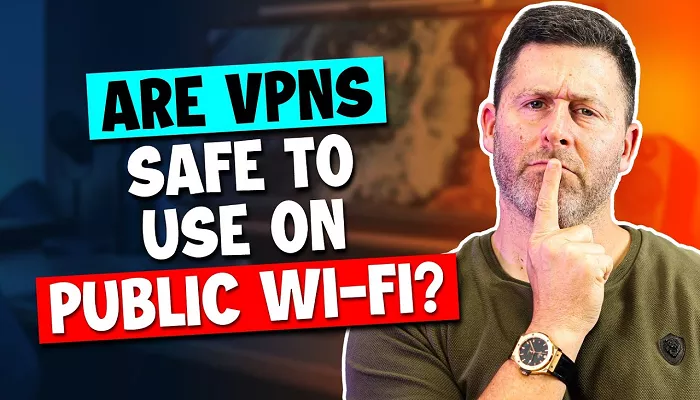In our increasingly connected world, public Wi-Fi networks have become ubiquitous, offering convenient internet access in places like coffee shops, airports, and hotels. However, these networks often lack robust security measures, making users vulnerable to various cyber threats.
Public Wi-Fi networks are convenient but pose significant security risks. Cybercriminals can exploit these networks to intercept data, monitor online activities, and launch attacks. A VPN is a tool designed to enhance online privacy and security by encrypting your internet connection and masking your IP address. But does it provide adequate protection over public Wi-Fi? Let’s explore this question in detail.
What is VPNs and Public Wi-Fi Risks
What is a VPN?
A Virtual Private Network (VPN) creates a secure, encrypted tunnel between your device and a VPN server, routing your internet traffic through this tunnel. This process hides your real IP address and encrypts your data, making it difficult for third parties to monitor your online activities or intercept your information.
Risks Associated with Public Wi-Fi
Public Wi-Fi networks are often unsecured, meaning data transmitted over them is not encrypted. This lack of security makes users susceptible to several threats:
- Eavesdropping: Attackers can intercept unencrypted data, capturing sensitive information like passwords, emails, and credit card details.
- Man-in-the-Middle (MitM) Attacks: Cybercriminals position themselves between your device and the Wi-Fi router, allowing them to alter communications and steal data.
- Evil Twin Attacks: Attackers set up rogue Wi-Fi hotspots with names similar to legitimate networks, tricking users into connecting and exposing their data.
How VPNs Enhance Security on Public Wi-Fi
Using a VPN on public Wi-Fi addresses several security concerns:
- Data Encryption: VPNs encrypt your internet traffic, ensuring that even if data is intercepted, it cannot be read without the decryption key.
- IP Address Masking: By masking your real IP address, VPNs make it difficult for attackers to track your online activities or determine your physical location.
- Protection Against MitM Attacks: The encryption provided by VPNs safeguards your data from being altered or intercepted during transmission.
- Defense Against Evil Twin Networks: VPNs secure your connection, making it less likely for attackers to successfully intercept your data, even if you connect to a rogue Wi-Fi network.
Limitations of VPNs on Public Wi-Fi
While VPNs significantly enhance security, they are not a panacea for all public Wi-Fi risks:
- Device Security: VPNs do not protect against malware or viruses that may already be present on your device. It’s essential to maintain up-to-date antivirus software.
- VPN Provider Trustworthiness: The security of your data also depends on the trustworthiness of your VPN provider. Some providers may log your activities or fail to implement robust security measures.
- Endpoint Security: While VPNs secure data in transit, they do not protect the endpoints (your device and the VPN server). If either is compromised, your data could be at risk.
Best Practices for Using VPNs on Public Wi-Fi
To maximize security when using public Wi-Fi with a VPN:
- Choose a Reputable VPN Provider: Select a provider known for strong encryption standards, a strict no-logs policy, and transparency in operations.
- Enable Kill Switch Features: Many VPNs offer a kill switch that disconnects your device from the internet if the VPN connection drops, preventing unencrypted data transmission.
- Keep Your Device Secure: Use comprehensive security software, keep your operating system and applications updated, and avoid downloading files from untrusted sources.
- Be Cautious with Sensitive Activities: Even with a VPN, avoid accessing highly sensitive information or conducting financial transactions over public Wi-Fi when possible.
Conclusion
Using a VPN over public Wi-Fi significantly enhances your online security by encrypting your data and masking your IP address, protecting you from various cyber threats. However, it’s crucial to recognize that VPNs are not a complete solution on their own. Combining VPN usage with other security practices, such as maintaining device security and exercising caution during sensitive activities, provides a more comprehensive defense against potential threats on public networks.

